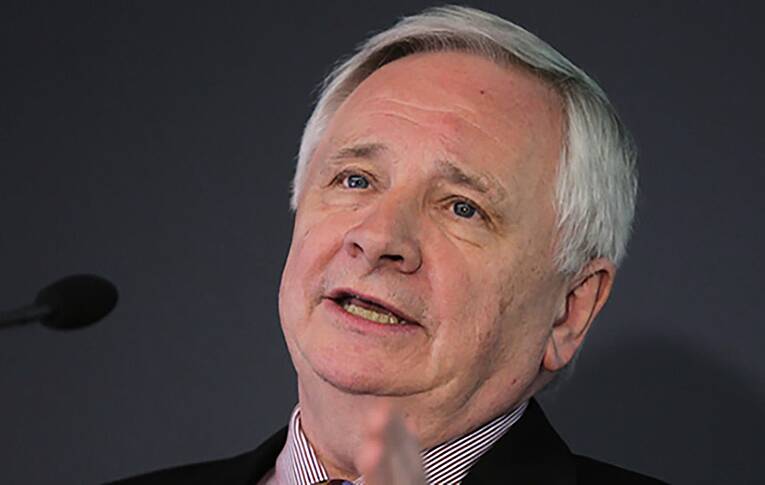‘We must learn and do better and this is an opportunity to introduce change and embrace it’ says Brian O’Connor, Chair at ECHAlliance

What’s your name and what position do you hold?
Brian O’Connor, Chair at ECHAlliance, the Global Connector for Digital Health.
What are your day to day responsibilities?
To ensure we achieve the goals set by the Board, which is facilitating multi-stakeholder connections around ecosystems, driving sustainable change and disruption in the delivery of health and social care. I support and assist our team who are working remotely in Spain, Finland, UK, Ireland, Germany and I work to maintain initiatives with our partners in India, Australia, Africa, Latin America, etc.
What is your professional background?
Since I left school at 16 (a long time ago!) I have been fortunate to learn from many mentors and worked on a number of start-ups and acted as a Corporate Doctor in the US and in Hong Kong.
How do you think the healthcare sector is coping with the Covid-19 crisis?
It depends on where you are and what aspect of healthcare you are analysing.
It is obvious that countries who claimed to have advanced healthcare systems have largely had mixed results. Look at the relative success of Nordic countries versus UK, Italy, Spain and others.
In the rest of the world, the US has been a shock, we expected better, it is a sobering example of no national plan, failure in political leadership failure and has exposed the many deep seated issues which have been apparent for years in the US healthcare system. In India, Brazil, Yemen, etc. many are doing their best, with inadequate facilities, and insufficient resources. Africa, depending on which country you look at appears to be doing relatively -and I do say relatively- well.
In all of this, one of the saddest facts is, we have all, at least to some extent, become focussed on statistics and perhaps forgotten the anguish, sadness and impact of losing loved ones.
What lasting impact do you see on healthcare delivery?
First, lessons are being learned – the failures in real time should lead to significant improvements.
Second, you would hope that after the number of deaths in many countries, in care homes and the failure to respect carers as frontline workers that actual action would be taken to rectify a decades-long problem.
The early signs are that there will be lots of talk, enquiries and reports – on past experience I am not certain there will be much action.
How do you see tech innovation transforming healthcare? What do you think will be the major breakthroughs over the next 5–10 years?
Covid19 has certainly enabled implementation and deployment of tech at an accelerated pace. It is now normal for all of us to use Zoom or whatever to have a virtual appointment.
Some of these technologies have been around for years going through too long a procurement process, some companies have gone out of business waiting.
There are great examples of deployments in Ireland, North and South where the HSE and NHS have enabled private companies to solve immediate problems.
There are many examples of collaboration across departments in Governments to provide a response to Covid-19.
There is much to be proud of in these clear-thinking decisions where human life is more important than process and risk averse thinking.
What do you think are the key challenges are in the digital transformation of the health service?
Culture and Funding: I am hopeful that lessons have been learned – time will tell, of course, but I see signs that there is an acceptance that the health and wellbeing of citizens should be the priority. More funds are needed and in some quarters I see that governments are waking up to the fact that investing in a health and wellbeing economy is beneficial in many ways.
In many countries, spending on health and care is a large part of any government’s annual budget and the cost is rising. I think that instead of looking at health and care as a burden or a cost, governments are beginning to realise it is also an annual investment in its population, their happiness, their productivity which of course feeds into the economy.
Think of the amounts that are spent annually in your country, in some cases they are the biggest single annual investment, think of the workforce, whose salaries are spent in the economy, think of the companies who could benefit from the procurement budgets within your Health Department, supported by your National Economic Agency, whose job it is to support the creation of jobs.
This is not a new idea, but I think it is worth revisiting in Covid-19 times.
We must think in different ways.
What will be the leading trends in healthcare in the coming years and how will patients and providers need to adapt?
The future is exciting, the greater use of data is already transforming what, where and who delivers care, allows earlier diagnosis, earlier intervention, etc.
Citizens expect more services to be available online at times that suit them and have shown they will expect the professions to supply them. The traditional providers of care now face competition from Amazon, Apple, Google, etc.
We are already in a Pandemic with Covid-19, we must learn and do better and this is an opportunity to introduce change and embrace it.
Brian O’Connor is speaking at The Business Post’s Smart Health virtual summit on Oct 22 – visit www.smarthealthsummit.ie for details.
